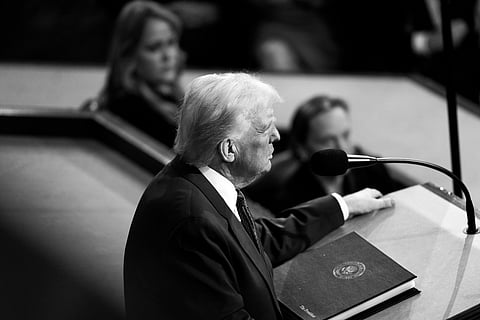

President Donald Trump signed a spending bill late Wednesday, ending the longest government shutdown in U.S. history after 43 days.
The measure, passed by the House 222-209 hours earlier and the Senate this week, extends federal funding until January 30.
All nonessential government services halted on October 1, furloughing about 670,000 civil servants while a similar number worked without pay.
Federal workers will receive back pay and return as early as Thursday, though full operations may resume gradually.
The shutdown disrupted air travel and delayed economic data, with economists estimating it reduced gross domestic product by over a tenth of a percentage point every six weeks.
Most lost output is expected to recover in coming months.
The deal adds roughly $1.8 trillion annually to the $38 trillion national debt.
Restoration of services offers relief for air travel ahead of Thanksgiving and food aid before Christmas, potentially boosting holiday spending.
However, the bill does not address health insurance subsidies for 24 million Americans under the Affordable Care Act, set to expire at year-end.
A Senate vote on subsidies is scheduled for December, but no House commitment exists.
The shutdown began amid partisan disputes over budget priorities, including aid for the medically needy versus tax cuts and military spending.
Some data gaps, like October employment and inflation reports, may be permanent.
Neither party claims clear victory, with a Reuters/Ipsos poll showing 50 percent of Americans blaming Republicans and 47 percent blaming Democrats.
Trump criticized Democrats during the signing, stating “we can never let this happen again” and “this is no way to run a country.”
House Speaker Mike Johnson called Democratic actions “pointless” and “cruel.”
Democratic Representative Mikie Sherrill, soon to be New Jersey's governor, urged resistance, saying “don’t give up the ship.”
Analysts warn of potential future shutdowns due to unresolved budget conflicts.
The House also advances unrelated matters, including Epstein records and senator privacy protections.